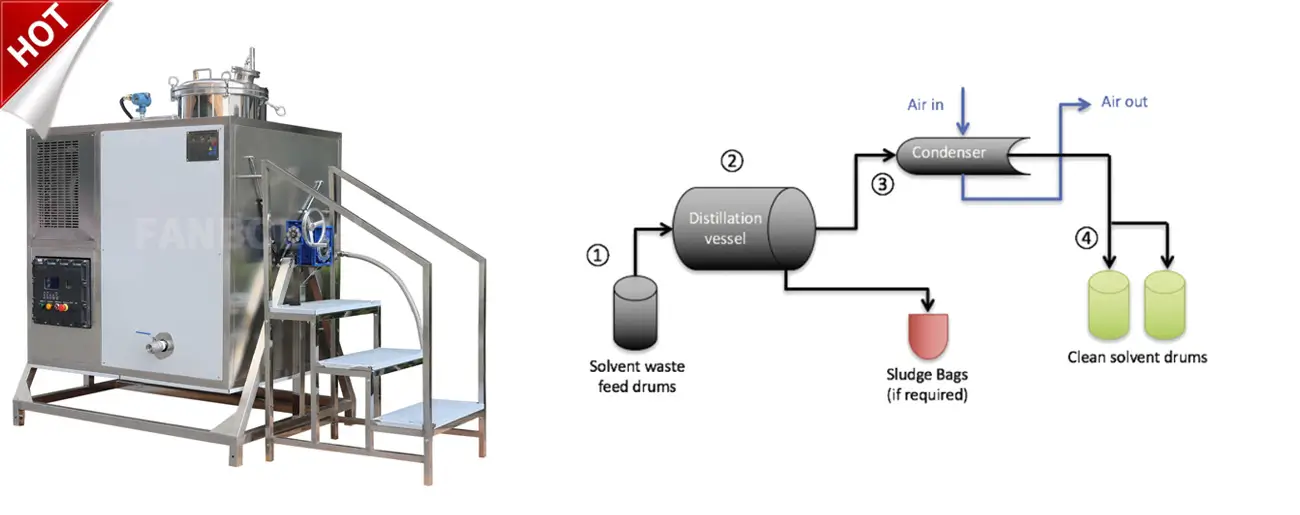In an era where sustainability and environmental conservation are paramount, industries across the globe are seeking innovative ways to reduce their ecological footprint. The car wash industry is no exception. With the increasing demand for car washing services, water consumption has skyrocketed, raising concerns about water scarcity and pollution. Enter the car wash water recycling system – a revolutionary solution that promises not only to conserve water but also to provide numerous economic and operational benefits.
The Importance of Water Conservation
Water is a precious resource, and its conservation is critical to ensuring a sustainable future. Traditional car wash operations consume a significant amount of water. According to the International Carwash Association, an average car wash uses about 40-45 gallons of water per vehicle. Considering the millions of cars washed annually, the cumulative water usage is staggering. Have you ever wondered how much water could be saved if every car wash recycled its water?

How Car Wash Water Recycling Systems Work
A solvent recycling system is designed to capture, treat, and reuse the water used during the washing process. Here’s a step-by-step breakdown of how these systems operate:
Collection: Water from the car wash is collected through a series of drains and directed to a storage tank.
Filtration: The collected water is then passed through a series of filters to remove debris, dirt, and larger particles.
Treatment: The filtered water undergoes further treatment to remove smaller particles, oil, and chemicals. This is often done using a combination of technologies such as sedimentation, biofiltration, and chemical treatment.
Storage: The treated water is stored in a separate tank, ready to be reused for the next car wash cycle.
Recycling: The recycled water is pumped back into the car wash system, significantly reducing the need for fresh water.
The entire process ensures that water is used efficiently, reducing waste and promoting sustainability.

Benefits of Implementing a Water Recycling System
Environmental Benefits
The most obvious benefit of a water recycling system is the conservation of water. By reusing water, car wash facilities can significantly reduce their reliance on fresh water sources. This is particularly important in regions facing water scarcity. Moreover, recycling water reduces the discharge of contaminated water into the environment, minimizing pollution and protecting aquatic ecosystems. Isn't it fascinating how a simple technology can have such a profound impact on the environment?

Economic Benefits
From an economic perspective, car wash water recycling systems can lead to substantial cost savings. Although the initial investment in such a system might seem high, the long-term savings on water bills can be significant. Additionally, many regions offer incentives and rebates for businesses that implement water-saving technologies. Over time, the system pays for itself, making it a financially sound investment.
Operational Benefits
Operationally, water recycling systems can enhance the efficiency of car wash facilities. By providing a steady supply of water, these systems ensure that operations are not disrupted due to water shortages. Moreover, the improved water management can lead to better quality washes, as recycled water is often treated to remove impurities that could potentially damage vehicle surfaces.
Overcoming Challenges
Implementing a car wash water recycling system is not without its challenges. One of the primary concerns is the initial cost of installation and the complexity of the technology involved. However, advancements in technology have made these systems more affordable and easier to integrate into existing car wash setups.
Another challenge is the maintenance of the recycling system. Regular maintenance is crucial to ensure the system operates efficiently and effectively. This includes monitoring the quality of recycled water, replacing filters, and ensuring that the treatment processes are functioning correctly. How often should maintenance be conducted to keep the system in optimal condition?
Case: EcoClean Car Wash
To illustrate the effectiveness of car wash water recycling systems, let’s look at a real-world example from "EcoClean Car Wash" in California. Faced with severe drought conditions and increasing water costs, EcoClean decided to implement a comprehensive water recycling system in 2020. This decision not only helped address water scarcity but also proved to be a game-changer for the business.
Implementation
EcoClean installed a state-of-the-art water recycling system that included advanced filtration and treatment technologies. The system was designed to capture runoff water from each wash cycle, filter out debris and contaminants, and then treat the water to remove any remaining impurities. The treated water was stored in a holding tank and reused in subsequent washes. This closed-loop system ensured that up to 85% of the water used in the car wash process was recycled.

Results
Water Conservation: Within the first year, EcoClean reported a 60% reduction in water consumption. This significant decrease not only helped the business comply with local water usage regulations but also played a vital role in conserving the region’s precious water resources.
Cost Savings: The reduction in water usage translated to substantial cost savings. EcoClean saved thousands of dollars on their annual water bills. Additionally, they received a rebate from the local water authority for their investment in water-saving technology, further offsetting the initial installation costs.
Customer Satisfaction: The quality of the car washes improved, thanks to the high purity level of the recycled water. Customers noticed the difference, resulting in increased satisfaction and loyalty.
Customer Feedback
EcoClean’s investment in water recycling did not go unnoticed by its customers. Here are three feedback that highlight the impact:
Jane M. - Regular Customer:"I’ve been coming to EcoClean for years, and I’ve always been happy with their service. Since they installed the water recycling system, I’ve noticed my car comes out cleaner and shinier than ever before. It’s great to see a business taking sustainability seriously."
Tom H. - First-Time Visitor:"I chose EcoClean because of their commitment to the environment. The fact that they recycle water is impressive. After my first wash, I was amazed at the quality. The car looked spotless, and it’s comforting to know they’re using less water."
Laura P. - Business Owner:"As a fellow business owner, I appreciate EcoClean’s forward-thinking approach. Investing in a water recycling system is not only good for the environment but also smart business. The quality of their washes is top-notch, and I feel good supporting a company that values sustainability."
Conclusion
EcoClean Car Wash’s experience with water recycling systems demonstrates the significant benefits of such technology. From substantial water conservation and cost savings to enhanced customer satisfaction, the positive impact is clear. This case study serves as a powerful example of how adopting sustainable practices can lead to tangible business advantages and long-term success.
The Future of Car Wash Water Recycling
As environmental awareness continues to grow, the demand for sustainable car wash solutions is expected to increase. Innovations in water recycling technology will further enhance the efficiency and effectiveness of these systems. Future advancements may include the integration of smart technologies to monitor and optimize water usage in real-time, ensuring maximum efficiency.
Moreover, as regulatory pressures increase, more car wash facilities will be required to adopt water-saving measures. Governments and regulatory bodies are likely to implement stricter guidelines and standards for water usage in the car wash industry, making water recycling systems a necessity rather than an option.
Conclusion
The car wash water recycling system represents a significant step towards sustainability in the car wash industry. By conserving water, reducing pollution, and providing economic benefits, these systems offer a win-win solution for businesses and the environment. The initial investment and maintenance challenges are outweighed by the long-term benefits, making it a viable and necessary technology for the future.
In a world where every drop counts, car wash water recycling systems pave the way for a more sustainable and responsible approach to car care. Will the industry rise to the challenge and embrace this innovative solution? The answer lies in the collective efforts of car wash operators, technology providers, and regulatory bodies working together towards a common goal of water conservation and environmental stewardship.
